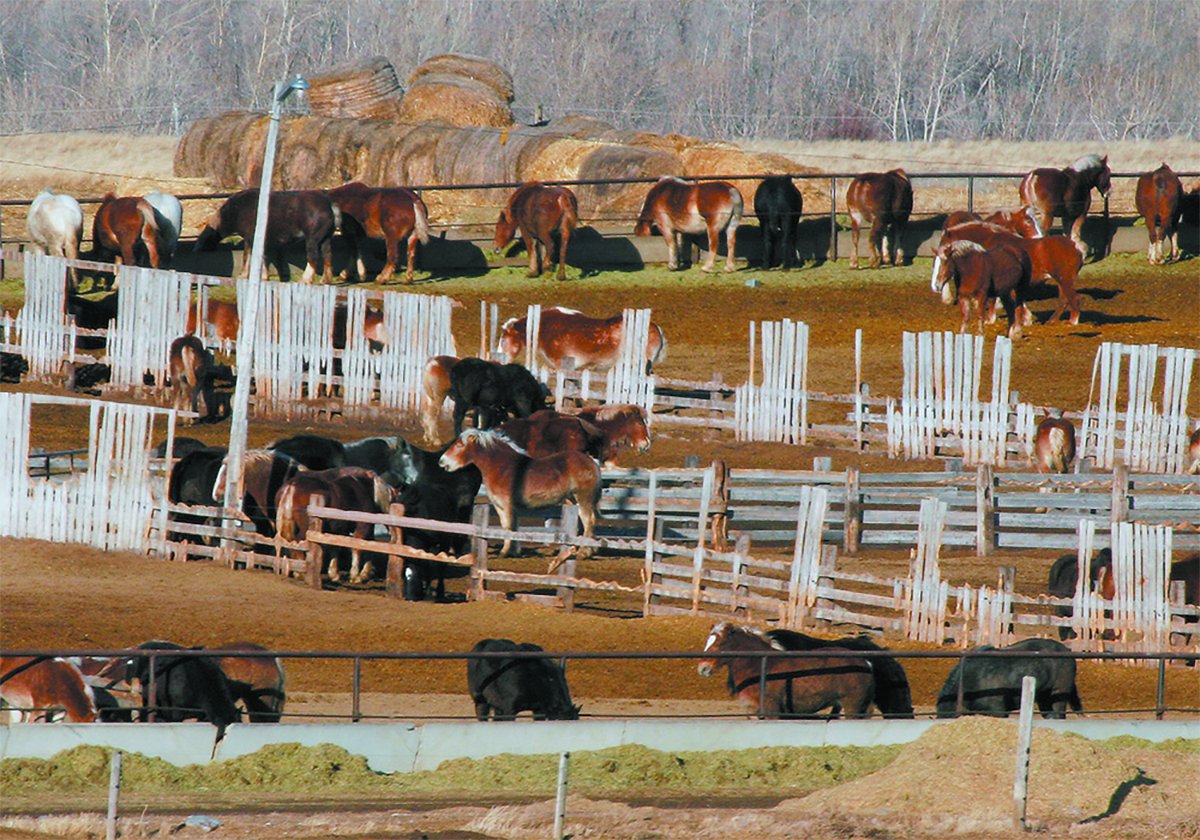Being an innocent bystander is not a good enough defence for cattle buyers caught up in a legal dispute over money.
Some livestock buyers have been stung recently due to cases of conversion resulting when sellers had not properly settled with their banks when marketing cattle.
“Because of a couple of conversion actions by lenders recently and the potential for conversion actions in the future, we are probably going to see many cattle transactions done with more caution in the future,” said Dale Wilson, chair of Livestock Identification Services in Alberta. He said several cases of conversion have been dealt with and settled out of court this year.
Read Also

Canada’s slaughter horse industry lacks transparency
The lack of clear reporting and public access to data keeps the industry largely hidden, leaving questions about humane treatment and traceability unanswered.
“If we hit a downturn in the market and people get into trouble, there could be serious repercussions,” he said.
Seven feedlots have received letters from banks this fall informing them as buyers that they are liable if the person they bought cattle from does not settle up with the bank.
The problem was discussed at the recent Alberta Cattle Commission annual meeting where several avenues were proposed to protect those caught up in a financial dispute.
Conversion happens when cattle are financed or listed as security for a loan, then sold without informing the bank. If the seller does not repay the loan, the bank has the right to pursue the buyers for its money for up to two years. The buyer may have to pay the bank for the animals again.
The Alberta Cattle Title Committee, formed last January, proposed several solutions to protect buyers.
“We have come up with a compromise that we hope will address the concern,” said Sherry Morthaller in an interview at the provincial commission’s annual meeting. Morthaller, who is chair of the title committee, said 97 percent of all Alberta cattle are financed.
The committee proposed a manifest change, in which security interests are listed so the proper parties may be paid. Some producers resist this idea, saying their privacy is invaded by listing the lien holder on a manifest.
The committee is also lobbying government for limits on how far a bank can pursue people when a deal turns sour. However, this involves changing the Canadian Bank Act, which is not likely to happen, said Morthaller.
The whole issue could be more easily resolved with better animal identification because branding is not sufficient to determine ownership.
“We need another mechanism to identify cattle. If you could make cattle a serial-numbered good, you could conduct searches,” said Morthaller, who works for Cargill Foods in cattle procurement.
Legislation in the United States limits this problem. A federal regulation requires each state to have a livestock registry to make title searches easier. Texas uses a system of notification where security holders are responsible for notifying buyers of their interest in cattle.
Conversion was first recognized in Alberta several years ago when a producer sold cattle at an auction market, then cashed his cheque at a different bank than the one holding his cattle as security. He did not pay his loan and went bankrupt. The bank went after the auction mart and forced it to pay for the cattle again.

















